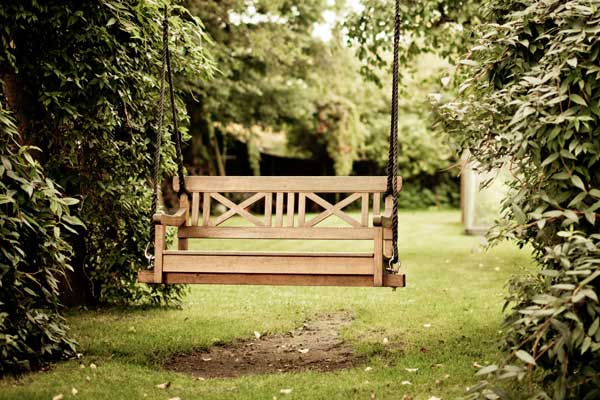Designing a beautiful home garden involves more than just aesthetics; it also involves making a place that is safe and practical for all users. While vibrant flowers and lush greenery are key elements, ensuring the safety of your outdoor space is just as important.

RubyHome states that 55% of U.S. households, or about 71.5 million, have a garden. The U.S. is one of the top three gardening countries in the world. While 55% of people garden to create a beautiful space, 43% do it to grow their own food.
A smart approach to home gardening can transform your yard into a safe haven. Here’s a guide to help you build an outdoor environment that’s not only inviting but also safe for everyone.
Choosing the Right Plants
Choosing the appropriate plants is one of the first steps in developing a secure and welcoming home garden. While flowers and greenery add beauty to your space, not all plants are family-friendly. Some can be toxic to children or pets if ingested or touched.
MedicalNewsToday notes that poison ivy, oak, and sumac are common toxic plants that contain urushiol, a toxin that can cause rashes upon contact. Poison ivy grows in most U.S. states, while poison oak is mostly found in the western U.S. Poison sumac thrives in wet areas, mainly in the Eastern states. Poison sumac has 7 to 13 leaves per stem, while poison ivy’s leaves turn red in fall. Poison oak features lobed leaves that resemble oak foliage, especially in summer.
Opt for non-toxic plants like marigolds, sunflowers, and lavender, which are safe and easy to maintain. Consider adding herbs like basil or mint, which are both useful in the kitchen and safe to grow around kids. You can ensure your garden remains a safe and joyful place for everyone by choosing plants that suit your family’s needs.
What are the Signs of Plant Toxicity for Pets?
Pets who are poisoned by plants frequently exhibit lethargy, profuse drooling, vomiting, and diarrhea. Other symptoms may involve difficulty breathing or abnormal behavior, such as seizures. For advice and possible treatment options, get in touch with your veterinarian if you think your pet may have consumed a toxic plant.
Be Aware of Dangerous Chemicals in Garden Products
Numerous everyday gardening supplies are made with dangerous chemicals that might endanger your family and pets. Fertilizers, pesticides, and herbicides often contain ingredients like glyphosate and neonicotinoids. These substances have been linked to health concerns ranging from skin irritation to more serious conditions like respiratory issues or even cancer.
One widely used herbicide, Roundup, contains glyphosate and has been under increasing scrutiny for its potential health risks. It has been found that prolonged exposure to glyphosate may increase the risk of developing non-Hodgkin lymphoma and other cancers.
Patient Power reports that a study indicates that exposure to glyphosate increases the risk of mutations in human chromosomes by 41%. This genetic damage can potentially lead to non-Hodgkin lymphoma. Additionally, individuals exposed to higher levels of glyphosate over extended periods face an even greater risk.
To minimize these risks, look for organic or natural alternatives when treating your garden. Composting, using natural repellents like neem oil, and introducing beneficial insects can help you maintain a healthy garden without resorting to toxic chemicals.
According to TorHoerman Law, Roundup lawsuits have surged in recent years in response to these concerns. Plaintiffs claim that exposure to the herbicide contributed to their cancer diagnoses. Numerous legal actions contend that Monsanto, the company that produces Roundup, did not sufficiently alert customers to the possible risks connected to glyphosate. Some cases have resulted in significant settlements, further fueling public concern about the safety of the product.
Drugwatch notes that there were 4,349 active Roundup lawsuit cases in California’s federal multidistrict litigation as of October 2024. In a historic January 2024 lawsuit, a Pennsylvania man who connected Roundup to his non-Hodgkin lymphoma won $2.25 billion from a Philadelphia jury. Despite the ongoing legal battles, lawyers continue to accept claims for trial or potential Roundup lawsuit settlements.
What Should I do if Exposed to Roundup?
If exposed to Roundup, immediately wash the affected area with soap and water to remove any residue. Monitor for symptoms such as skin irritation or respiratory issues and seek medical attention if these occur. Keeping the product stored safely and using protective gear during application can help prevent future exposure.
Create Safe, Inviting Zones for Relaxation and Play
Beyond plant choices and chemical safety, a well-designed garden should include areas for relaxation and play. Define spaces with soft grass, comfortable seating, and shady spots where your family can unwind. For children, consider creating a designated play area with outdoor toys or a sandbox, ensuring any materials used are non-toxic and safe.
Paths made from smooth stones or non-slip materials are ideal for reducing trip hazards. For further inspiration on creating visually appealing and safe outdoor pathways, check out our guide to tile patterns. With this, you can make your home garden a space where everyone feels safe, relaxed, and connected to nature.
What Outdoor Safety Measures Should I Take for Kids?
Examine outdoor toys for wear and tear regularly to provide a safe play area. Set clear boundaries for play areas and ensure they are free from hazards like sharp objects or poisonous plants. It’s also essential to supervise children during outdoor activities to prevent accidents and injuries.
With careful design, you may turn your outside area into a secure and hospitable home garden. Start with choosing non-toxic plants that are secure for children and animals. Make use of natural pest control methods to keep harmful chemicals at bay. Create designated play areas with soft surfaces and safe toys to ensure your family can enjoy the outdoors worry-free.
A well-kept garden improves the aesthetics of your home and creates a healthy atmosphere for everybody. You can design a stunning garden that acts as a sanctuary for your loved ones and canine companions by putting fun and safety first.




